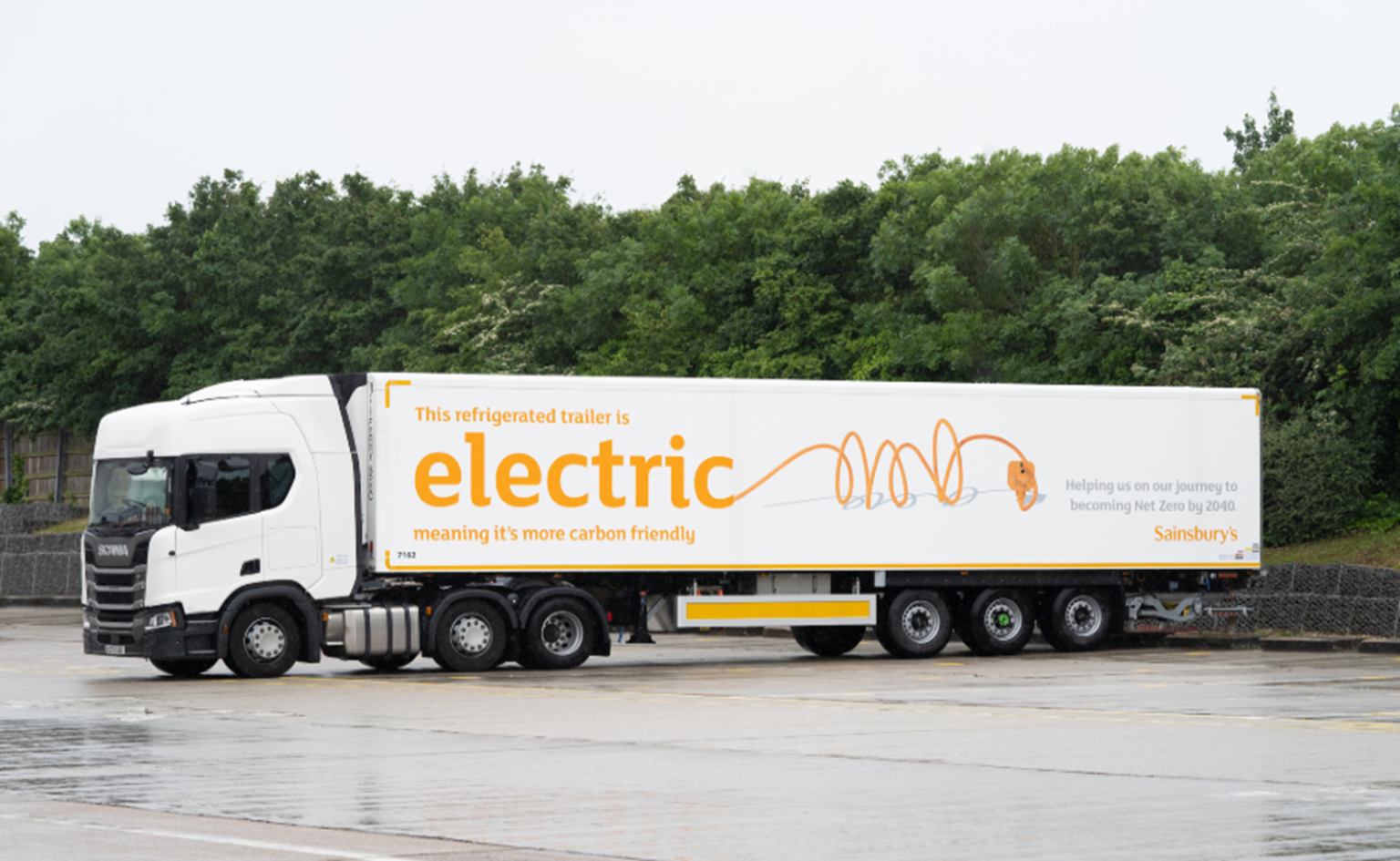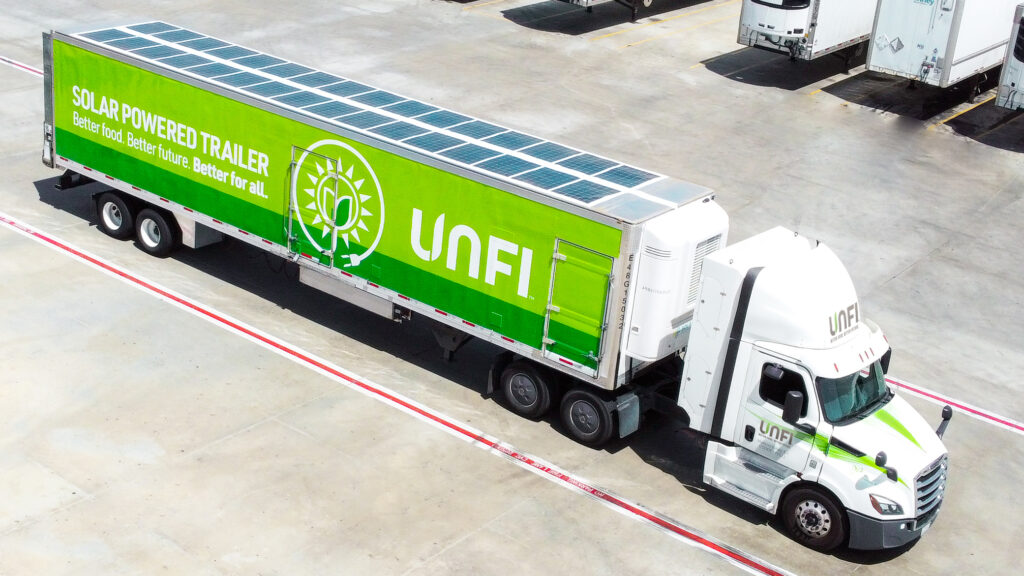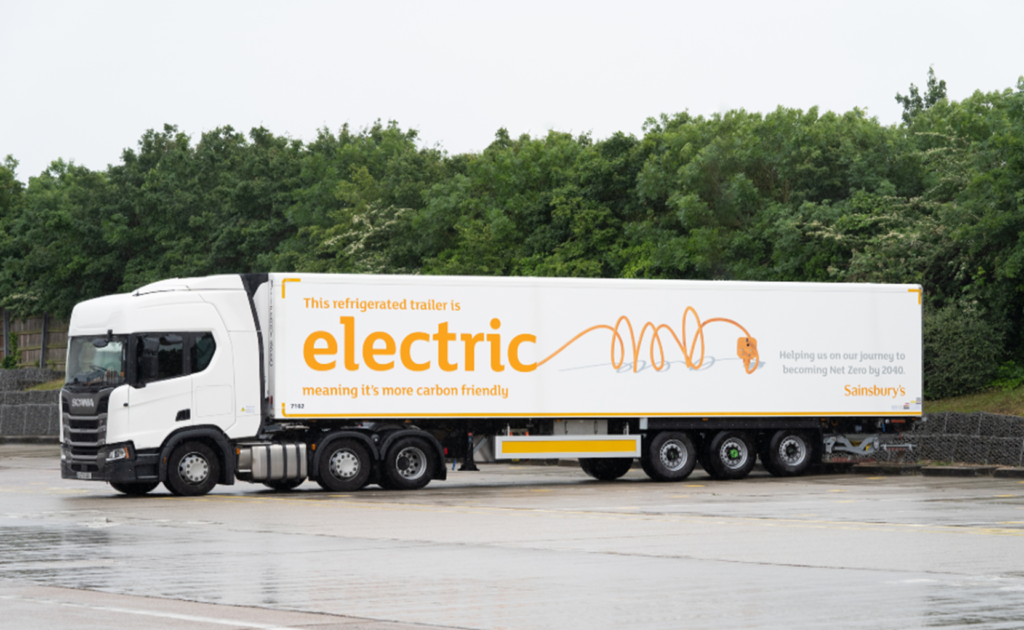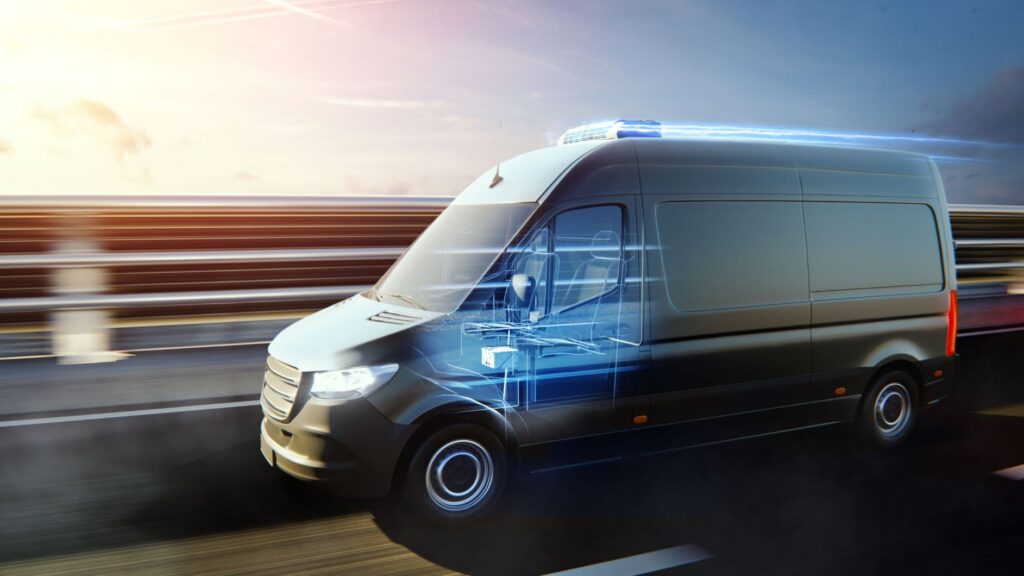Making the all-electric cold chain a reality
- PostedPublished 3 December 2021


Out with diesel, in with electric: the growing adoption of zero-emissions refrigerated trailers
Supermarket chain Sainsbury’s, which is based in the United Kingdom, has reportedly become the first retailer in the country to adopt fully electric refrigerated trailers.
The move, which will reduce the environmental impact of its vehicles, is part of the company’s overarching plan to eliminate the carbon emissions of its operations over the next 20 years – a process into which it will invest £1 billion ($A1.9 billion).
Patrick Dunne, director of property, procurement and cost transformation at Sainsbury’s, said: “We will continue to introduce fully electric refrigerated trailers to the delivery fleet over the next 20 years based on Sainsbury’s and Argos’s energy infrastructure, helping us to plan for a better future.”
The five trailer refrigeration units (TRUs) – also known as “reefers” – used by Sainsbury’s are equipped with Vector eCool refrigeration systems, supplied by the American temperature-controlled transport and shipping specialist Carrier Transicold.
The Vector eCool combines the company’s electric E-Drive refrigeration unit with a storage battery and a kinetic energy recovery system, which captures energy from the trailer axles and brakes. The trailer can also be connected to the grid when parked, which charges the battery; all in, the autonomous system produces no direct carbon dioxide (CO2) or particulate emissions.

The American company United Natural Foods, Inc. (UNFI) has similarly announced plans to convert 53 of its diesel-powered TRUs to all-electric power, in part because the California Air Resource Board intends to impose zero-emissions requirements on TRUs at the end of 2029.
“Nearly 50 per cent of UNFI’s direct greenhouse gas emissions are from our fleet of trucks and trailers,” said Jeff Wismans, national director of fleet operations at UNFI. “These 53 all-electric TRUs will help us get a head-start on the proposed CARB zero-emission requirements, and are expected to allow us to decrease our emissions as we make progress on our climate action commitments.”
The 53 trailers will be refitted by American specialist Advanced Energy Machines (AEM), and will utilise solar panels, lithium-ion batteries and a kinetic energy recovery system to eliminate the need for diesel power.
An increasingly wide array of green TRUs will, in time, further serve to make it easier for companies to transition to zero-emissions units. Renewable transport power specialist eNow, for example, recently struck a deal with commercial and municipal electrification specialist XL Fleet to build 1000 solar-equipped, electrically powered trailer solutions.
The North American XL Fleet will supply the battery and power electronics for Rhode Island-based eNow. The system, which can reputedly power the trailer for twelve hours, will be integrated with eNow’s patented solar system to extend the trailer’s runtime.
American refrigerated transport specialist Thermo King has also announced that it intends to deliver a fully electric product for every segment of the cold chain by 2023. To do so, it will invest $100 million ($A137 million) to expand its “evolve” range of all-electric products.
This will include electric refrigeration solutions for trucks, rail, air and marine transport, and help advance parent company Trane Technologies’ 2030 sustainability targets – including efforts to reduce its customers’ greenhouse gas emissions by one billion tonnes.

Nevertheless, care needs to be taken to ensure that eco-minded targets and legislation don’t outstrip the available support, technology and product lines.
For instance, in the UK, new emissions-reducing regulations that come into force in April 2022 will more than double the cost of untaxed off-road “red” diesel used in TRUs. The implications are significant but, despite its significance, no grants or provisions are being made for refrigerated transport.
Shane Brennan, the chief executive of the UK’s Cold Chain Federation, said: “We agree that businesses must transition to cleaner equipment, and we believe it is possible. Our challenge is that the alternatives that do exist are still limited in number, relatively untested and prohibitively expensive.
“We asked for more time to transition but this was rejected. We were told financial support would be made available – and yet after months of silence, all the indications are that there is actually no support.”
- CategoriesIn SightGlass
- TagsSightglass News Issue 25


